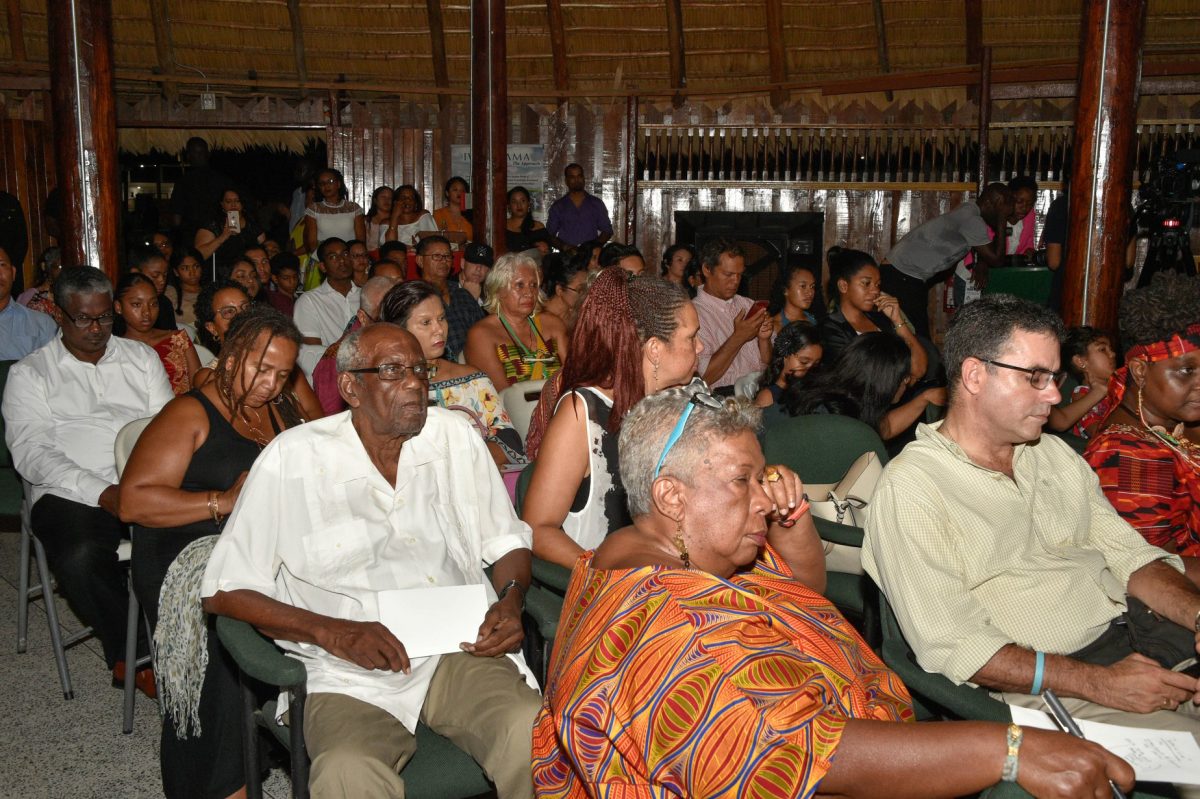Iwokrama will not be neglected but will be developed into a biodiversity conservatory and schoolhouse for studying ecosystem services, says President David Granger, who has pledged a “new covenant” under which Guyana will bear the greatest responsibility for the research centre’s future development.
Granger was speaking at an event to mark the 30th anniversary of the pledge that subsequently resulted in the establishment of the Iwokrama International Centre (IIC) for Rainforest Conservation and Development. At the 11th Commonwealth Heads of Government Meeting in Malaysia in 1989, the Langkawi Declaration on the environment called for action to tackle the world’s foremost environmental threats. Consequently, Guyana’s President Desmond Hoyte committed a forested area of 371,000 hectares as a model for conservation and sustainable forest management – Iwokrama. The IIC was formally established on 9th November 1995 with the signing of an agreement between the Government of Guyana and the Commonwealth Secretariat.
In his address, which was issued by the Ministry of the Presidency, Granger noted that over the years, a number of crises diverted donor preferences and priorities away from supporting major environmental initiatives such as Iwokrama. As a result, the IIC has been unable to access adequate assets to execute its mission fully, he observed.
Against this backdrop, he said that Iwokrama must change to survive and it can no longer subsist under the old covenant which played a pivotal role over the past 30 years.
“The centre is part of the national patrimony and Guyanese, first and foremost, must bear greatest responsibility for the centre’s future development, without cutting the umbilical cord of international cooperation,” he said.
According to Granger, a “new covenant” will be crafted to ensure Iwokrama’s survival and success, in perpetuity. The new covenant will be functional rather than ornamental, he said.
“Iwokrama, under the new covenant, will be about education rather than entertainment and research rather than recreation. The centre must become a schoolhouse for students aiming to study the sciences – biology, botany and zoology…” he said. The president emphasised that Iwokrama, with its rich biodiversity, is pivotal to positioning Guyana’s economy onto a green growth pathway. “Iwokrama, with yet undiscovered and unexploited resources, is essential to our economic existence. Iwokrama can teach the world lessons on biodiversity. Sanctuaries for the conservation and preservation of our rich flora and fauna will be established,” he asserted.
Granger, who is performing the functions of a caretaker President pending fresh general elections, reiterated his government’s intention, with the support of international partners, to make Iwokrama into a world-class institute for biodiversity research that will serve the educational needs of students for generations to come.
“Iwokrama will be the home of an International Institute for Biodiversity to support its educational efforts. The institute will allow students and researchers from the continent, the Caribbean and the rest of the world to come to Iwokrama to study its biodiversity and to increase knowledge and understanding of our vital ecosystems,” he said.
The president recalled that one of his most depressing experiences was when he visited the University of Guyana’s Centre for the Study of Biological Diversity in October 2016 and saw “a cemetery rather than a laboratory of biodiversity.”
“Iwokrama will not suffer that fate. The new covenant to be unveiled, during our Decade of Development: 2020-2029, envisages Iwokrama as a ‘living’ repository of the country’s unsurpassable biodiversity. Iwokrama will become the home of all of Guyana rich and diverse flora and fauna,” according to Granger.
“A new era is about to dawn for Iwokrama. It will be developed into a biodiversity conservatory and a schoolhouse for studying ecosystem services,” he said.
According to Granger, Iwokrama will not be allowed to become a lifeless monument or museum, or a timber grant or gold mine. The IIC will not be allowed to become an environmental ‘theme park’ or the ‘playground’ for celebrities, he said.
The president observed that Guyana has been a trailblazer in global environmental protection and said that Iwokrama has demonstrated how small states can punch above their weight in offering solutions to global environmental problems.
He added that in the next decade, Guyana will honour its commitments to place an additional two million hectares under conservation, in accordance with the country’s nationally determined commitments under the Paris Agreement. The country will also pursue measures to preserve biodiversity and ecosystem services and to proscribe the exportation of wildlife; and promulgate policies aimed at ensuring low rates of deforestation, improved timber-monitoring, a high level of timber legality and greater value-added activities in the forestry sector to augment carbon storage in long-use wood products and promote low emission, low-carbon development of the country’s natural resources.
In opening his address, Granger cited signs of threats to the environment.
“The frightening spectacles – of the Atlantic Ocean’s waters rushing unimpeded onto the rice paddies at Dantzig; of the stelling at Parika, in full flood; of Omai’s cavernous, mined-out craters; of Aurora’s depleted forests or Cuyuni’s turbid waters contaminated with gold-mining effluent; of Rupununi’s savannah fires and Shell Beach’s disappearing mangroves – are nothing if not apocalyptic”, he said.
He also said during his address that Guyana’s biodiversity is more precious than petroleum.
“Petroleum is ephemeral…the environment is eternal…extinction is forever. The environment is essential to earth’s existence and will remain so long after oil reserves have been exhausted. Guyana plans to utilize the revenue from petroleum production to advance its ‘green’ development agenda, inter alia”, Granger said.






